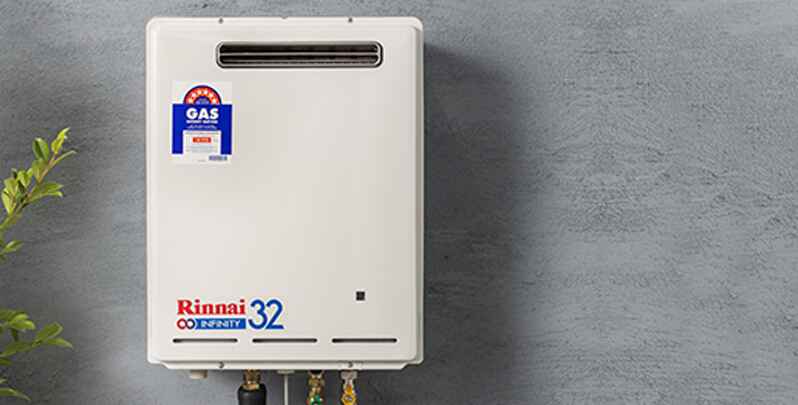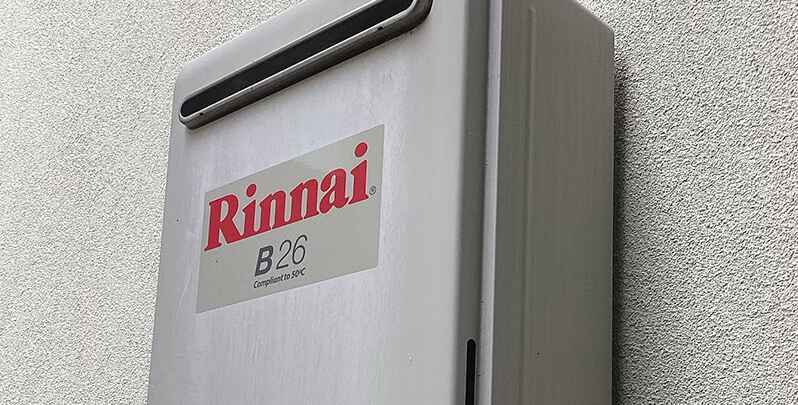How Efficient is a Gas Hot Water System?

Welcome to our comprehensive guide on the efficiency of gas hot water systems. Gas hot water systems are popular for households because they efficiently provide a continuous hot water supply.
In this blog, we’ll delve into the inner workings of these solar hot water systems, explore their advantages, and discuss the various factors that can impact their efficiency.
Whether you already have a gas hot water system or are considering installing one, this guide will help you understand how to get the most out of it while saving energy and money.
How Gas Hot Water Systems Work
Designers create hot water systems using natural gas or propane as the primary energy source to heat water. They consist of several components working together to provide hot water on demand.
The primary features include a two-gas burner, a heat exchanger, a thermostat, and a flue to expel combustion gases.
When you turn on a gas water heater or tap, cold water from the main supply enters the system and passes through the heat exchanger. The burner ignites, heating the heat exchanger and transferring the heat to the passing water.
As the water absorbs heat, it becomes hot and ready for use. The burner stops once you turn off the tap gas water heaters, and the hot water supply ceases.
Advantages of Gas Hot Water Systems
Gas hot water systems’ efficiency stems from their various advantages. First and foremost, unlike electricity only, they are energy-efficient, using natural gas or propane as a cheaper fuel source than electricity.
As a result, they can help you save on your energy bills in the long run.
Moreover, gas hot water systems boast a faster recovery rate than their electric counterparts. It means that they can quickly reheat the incoming and heat pump water heater, providing a continuous hot water supply even during periods of high demand.
This advantage is particularly beneficial for larger households with multiple users.
Factors Affecting Efficiency
You must consider several factors to ensure optimal gas hot water system efficiency. Proper insulation and a continuous flow system are crucial to minimise heat loss from the storage tank and water heater.
Insulating the tank and hot water pipes can prevent unnecessary energy wastage and keep the water hot for extended periods.
Another critical factor is choosing the right size and capacity of the system. An oversized unit can lead to excessive energy consumption, while an undersized one might need help to meet the household’s hot water demands.
Consulting with a professional to determine how much water is the appropriate size based on your household’s needs is essential.
Regular maintenance and servicing are vital in maintaining efficient gas storage systems. Sediment build up and mineral deposits can hinder the system’s performance over time. Scheduling regular inspections and flushing the system will help keep it running smoothly.

Tips to Optimise Efficiency
Here are some practical tips to optimise the efficiency and cost-effective of the gas water heater of your gas hot water system:
- Adjusting thermostat settings: Lowering the thermostat temperature can save a certain amount of energy without compromising comfort. A temperature of around 120°F (49°C) is generally sufficient for most households.
- Insulating hot water pipes: Wrapping hot water pipes with insulation can prevent heat loss during distribution, ensuring the water remains hot until it reaches the tap.
- Installing a timer or programmable thermostat: A timer or programmable thermostat allows you to schedule the water heater to operate only when you need hot water. It prevents unnecessary water heating even when hot water isn’t required.
- Flushing the system: Periodically flushing the system helps remove sediment and mineral buildup, ensuring highly efficient solar heat transfer and extending the system’s lifespan.
Gas vs Electric Hot Water Systems
When comparing gas and electric hot water systems, the energy efficiency of gas systems becomes apparent.
Electric systems are generally less efficient due to the higher electricity cost than gas. Gas systems also have a lower carbon footprint, making them a more environmentally friendly choice.
How Efficient is a Gas Hot Water System Compared to an Electric System?
Gas hot water systems are significantly more efficient than electric systems. They utilise natural gas or propane, which is generally cheaper than electricity, resulting in cost savings on household energy bills and household use.
The efficiency of a gas hot water system compared to an electric store water system can vary depending on several factors, including the energy source, the type of system, and your specific circumstances. Here are some key points to consider:

Energy Source:
- Gas: Gas water heaters are often more energy-efficient than electric ones. Natural gas or propane heaters have a higher energy density than electricity, meaning they can heat water more efficiently. This is especially true for tankless or on-demand gas water heaters, which only heat water as needed.
- Electricity: Electric water heaters can be less efficient because converting electricity into heat can have some energy losses, especially in older, less efficient models.
Type of System:
- Tankless water heaters: Tankless or on-demand water heaters, whether gas or electric, are generally more efficient than traditional tank-style heaters. This is because storage tank systems only heat water when needed, avoiding standby heat loss.
- Tank-style water heaters: Gas versions are more efficient than electric ones of similar capacity if you have a tank-style water heater. However, newer electric water heaters may have improved insulation and heating elements, increasing their efficiency.
Other Factors
- Climate: The climate where you live can also affect efficiency. Gas heaters might be more efficient in colder climates because they heat water faster, whereas electric heaters may need help to keep up with demand.
- Energy costs: The cost of electricity and gas in your area can impact the overall cost-effectiveness of your hot water system. A gas system may be more cost-efficient if gas is significantly cheaper than electricity.
- Installation and maintenance: Gas water heaters generally require more maintenance, including venting and combustion air supply, which can add to the overall cost and affect efficiency if improperly maintained.
- Environmental considerations: If you’re concerned about environmental impact, consider the energy source. In areas with a high percentage of renewable energy in the electricity grid, an electric water heater may have a lower carbon footprint than a gas or solar one.
- Cost of equipment and installation: The initial cost of purchasing and installing a gas water heater can be higher than that of an electric water heater. However, energy savings over time may offset the running costs of this initial investment.
In summary, gas hot water systems are often more energy-efficient than electric systems, especially regarding heating performance.
However, the overall efficiency and cost-effectiveness depend on factors like your location, the type of system you choose, energy prices, and maintenance. It’s essential to consider your specific circumstances and energy needs when selecting a hot water system.
Seek Professional Help for Your Water System
In conclusion, gas hot water systems offer remarkable efficiency and benefits for households. By understanding how these reliable hot water systems work, considering the factors that affect their efficiency, and implementing the tips, you can ensure that your gas hot water system operates optimally, providing a steady and reliable hot water supply while saving energy costs.
Remember to perform regular maintenance and seek professional advice to keep your gas hot water system running smoothly for years to come.
Please note: This information is provided for advice purposes only. Regulations differ from state to state, so please consult your local authorities or an industry professional before proceeding with any work. See our Terms & Conditions here.